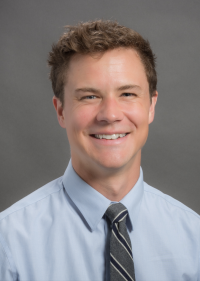Dr. Garrett to Lead Study on the Non-Curricular Activity Experiences of FiF Medical Students

Dr. Alexander Garret will serve as the Principal Investigator on a new study that will explore the non-curricular activity experiences of medical students who are the first in their families to graduate college (FiF).
Dr. Garrett is collaborating on the study with Max Griffith, Justin Bullock, Jon Ilgen, and Joshua Jauregui.
The study titled, 'Exploring First in Family to College Medical Students’ Experiences with Noncurricular Activity Participation through an Anti-Deficit Lens: A Qualitative Study,' is sponsored by UW Center for Learning & Innovation in Medical Education (CLIME).
Students who are the first in their family to graduate college (FiF) are disproportionately underrepresented in medical school and must develop facileness with the unfamiliar affordances, traditions, and unspoken rules of a system designed without them in mind. The intersectional identities and the perspectives they have built through resiliently pursuing higher education provide an opportunity to improve training environments and healthcare by confronting hegemonic assumptions with outsider perspectives.
This qualitative study will explore the non-curricular activity experiences of FiF medical students. Using semi-structured interviews, the team will try to answer four key questions developed using an anti-deficit framework:
- What non-curricular activities do first in FiF students participate in and what are their perspectives regarding the value of these activities on their personal and professional development?
- How do FiF students make decisions regarding the use of their time outside of the curriculum?
- How do FiF students conceptualize achievement as they make choices regarding activities to participate in?
- What activities and achievements are FiF students proud of, and how do they see these as furthering their development toward their ideal of a quality physician?
By asking these questions, they hope to gain an inside perspective of not only what choices students make, but why they make them and what this says about their personal and professional social context. They hope to better understand how they may conceptualize achievement, balance participation with obligation, and relate their activities to professional development to inform the redesign of a more just medical school environment.







